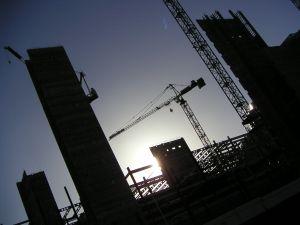Prompt Payment Act

New Jersey’s Prompt Payment Act
McLaughlin & Nardi’s construction law attorneys represent construction contractors of all sizes on a wide range of matters. One of the most frequent difficulties contractors encounter is collection of payment for work performed. New Jersey’s Prompt Payment Act is one of the most effective methods contractors have for gaining payment.
The Prompt Payment Act requires prompt payment of contractors (defined as a person or entity contracting with an owner to improve real property), subcontractors (those who contract to provide labor, material or other services to a prime contractor), sub-subcontractors (providing the same to a subcontractor) and material suppliers on both public and private jobs. Architects and engineers, for example, may be contractors, subcontractors or sub-subcontractors.
Under the Prompt Payment Act, a contractor’s invoice must be paid within thirty days of receipt. However, to trigger this requirement, the bill must have been “approved and certified.” For most owners, an invoice is deemed “approved and certified” if the owner does not object in writing within twenty days after receipt of the bill, and if the owner does object it must specify the objected amount and provide the reasons for the objection. It must also try to resolve the issues in good faith with the contractor. If only a portion of the work is objected to, the owner must promptly pay for the portion which is not objected to. Failure to object thus creates a presumption that the work was performed and payment is due. The contractor can stop work seven days after it provides notice to the owner of violation of the Prompt Payment Act’s requirements.
Contractors and subcontractors must pay their subs within ten days after other work is accepted by the owner and they receive payment unless their subcontract provides differently. Contractors may withhold payment for unsatisfactorily performed work, and need not give their reasons for withholding payment. However, if they do not, the subcontractor may also stop work.
If the owner is a governmental entity which requires a vote by its board for approval, the contract may contain a provision that the payment application will be submitted for approval at the next scheduled meeting after receipt of the bill, and paid in the next payment cycle. The contract should have such a provision if the public entity wishes to invoke this exception.
If an owner improperly fails to pay a contractor in violation of the Prompt Payment Act, or if a contractor improperly fails to pay a contractor, there are significant consequences. First, interest is due at the prime rate plus one percent. Second, the losing party is responsible for prevailing party’s costs and attorneys fees if litigation is instituted. Third, the unpaid contractor or subcontractor stopped work.
Contracts must also contain a clause providing that disputes over prompt payment “may” be submitted to “alternative dispute resolution.” The two generally used forms of alternative dispute resolution are arbitration and mediation. Although the New Jersey Prompt Payment Act is somewhat unclear, it would appear that if either party opted for arbitration, that would be a binding forum foreclosing recourse to the courts or any appeal. The Act does not foreclose other remedies, however; a party could still bring other claims in court. Thus, contractors wishing to avoid arbitration might decide to forgo suing under the Prompt Payment Act and simply sue for breach of contract. This, however, is a choice of what strategy to pursue, not whether or not to seek to collect the amount due. Contractors and subcontractors who do the work have the right to get paid, and have different ways to do so.
Call our New Jersey construction law attorneys to collect accounts receivable due from owners or contractors at (973) 890-0004 or e-mail us for help.

